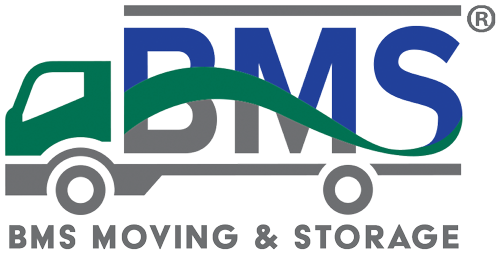- Long Distance Moving
- 6 Min Read
How Much Does it Cost to Move to Another State? Breaking Down the Expenses
-
Share

Moving to a new state marks an exciting chapter in life, whether you’re relocating for a new job, family, or simply a fresh start. But before you start packing boxes and planning your farewell party (have you heard of House Cooling parties?), it’s crucial to understand what this major transition will cost.
Interstate moving expenses can vary dramatically based on numerous factors, and being prepared financially will help ensure your move goes smoothly without breaking the bank.
Understanding the Average Cost of Interstate Moving
The typical cost to move to another state ranges from $2,500 to $12,000, with most families spending between $4,500 and $7,500 for a full-service professional move. These numbers might seem broad, but that’s because interstate moving costs depend heavily on your specific circumstances. A single person moving from a studio apartment will pay significantly less than a family relocating from a four-bedroom house.
For those considering different moving options, here’s what you can generally expect to pay:
- Professional full-service movers: $4,500 to $13,000
- Hybrid moving services (you pack, they drive): $2,500 to $6,500
- Moving container rental: $1,200 to $5,000
- DIY truck rental: $1,000 to $4,000
These ranges account for various move distances and home sizes, but remember that your actual cost could fall outside these estimates depending on your unique situation.
Key Factors That Impact Your Interstate Moving Budget
Several critical elements determine your final moving bill. Distance stands as the most obvious factor. Moving from Washington, D.C. to Florida costs considerably less than relocating from California to North Carolina. Most professional movers calculate long-distance rates based on mileage, with costs increasing proportionally as the distance grows. Fuel costs, driver wages, and vehicle maintenance all contribute to this distance-based pricing model.
The volume and weight of your belongings play an equally important role in determining costs. Professional movers typically estimate based on the cubic feet your items will occupy in their truck or the total weight of your shipment. A three-bedroom home averages 7,500 pounds of household goods, while a one-bedroom apartment might only weigh 2,500 pounds. This difference can translate to thousands of dollars in moving costs.
Timing your move strategically can lead to significant savings. Peak moving season runs from May through September, with the highest demand—and prices—occurring during summer months. Moving companies might charge more during these busy periods. Additionally, weekends and month-end dates typically cost more than mid-week or mid-month moves due to higher demand.

Essential Services For Your Move
Professional packing services can add to your moving bill, depending on your home’s size and the fragility of your items. While this represents an expense, professional packers work efficiently and use proper materials to protect your belongings during transit. In addition, you’ll want to keep in mind moving insurance, which provides crucial protection for your belongings during an interstate relocation.
Storage needs often arise during interstate moves, especially when there’s a gap between leaving your old home and moving into your new one.
EMBEDDED VIDEO: https://www.youtube.com/watch?v=FKYuNbXfwqk
4 Hidden Expenses Most People Overlook
1. Travel and Accommodation Costs
Whether you’re driving your car to your new state or flying and having your vehicle shipped, factor in costs for gas, hotels, meals, and potential vehicle maintenance. A cross-country drive might require $500 to $1,000 in travel expenses alone, not counting time off work. If you’re flying, add airfare for your family plus potential pet transportation fees of $200 to $500 per animal.
2. Packing Materials and Supplies
Packing supplies seem minor but can cost $200 to $500 for an average home. Boxes, bubble wrap, packing paper, tape, and specialty containers for dishes or wardrobes add up fast. While some moving companies include basic supplies in their quotes, others charge separately, so clarify this upfront. Specialty boxes for TVs, mirrors, and artwork can cost $20 to $50 each.
3. Special Handling and Access Fees
Items requiring extra care or equipment incur additional charges. Piano moving can add to the cost, depending on the type and stairs involved. Hot tubs, pool tables, and grandfather clocks often incur similar surcharges.
4. Utility Setup and Cancellation Charges
Disconnecting utilities at your old home and connecting them at your new residence involves multiple fees. You might face early termination penalties for internet, cable, or security services. New connection fees, deposits, and installation charges at your destination typically add another cost, depending on the services you need and your credit history in the new state.
Money-Saving Strategies for Your Interstate Move
Reducing your interstate moving costs doesn’t mean compromising on service quality. Smart planning and strategic decisions can save thousands of dollars while ensuring your belongings arrive safely at your new home.
Decluttering before your move serves a dual purpose: reducing moving weight and potentially generating cash for moving expenses. Host a garage sale, sell valuable items online, or donate to charity for tax deductions. Every pound you don’t move saves money, and professional organizers estimate most homes contain 20-30% of items that could be eliminated.
Flexibility with your moving date opens opportunities for significant discounts. If you can avoid summer, weekends, and holidays, you’ll likely access better rates and more attentive service from less-busy crews.
As always, look beyond the bottom line to compare insurance coverage, included services, and company reputation. The cheapest option isn’t always the best value.
Choosing Between DIY and Professional Moving Services
The decision between handling your own move and hiring professionals involves more than just comparing price tags. Each option has distinct advantages and hidden costs that affect both your budget and your moving experience.
DIY moving with a rental truck offers the lowest upfront cost but requires significant physical effort and time. Beyond the truck rental ($1,000 to $3,000 for interstate), factor in gas ($300 to $800), insurance ($100 to $300), equipment rental ($50 to $150), and potential hotel stays. Plus, consider the physical toll and risk of injury when moving heavy furniture without professional equipment or experience.
Professional movers charge more initially but provide comprehensive services that often justify the cost. They bring experience, proper equipment, liability coverage, and efficiency that can actually save money by preventing damage and reducing time off work. Plus, for moves over 1,000 miles or involving valuable belongings, professionals often prove more economical when all factors are considered.
Planning Your Interstate Move Timeline and Budget
Creating a realistic timeline and comprehensive budget ensures your interstate move proceeds smoothly without financial surprises. Start planning at least three months before your move date to secure the best rates and availability from moving companies.
- Eight to twelve weeks before moving, begin researching moving companies and gathering quotes. This timing allows you to book during optimal pricing periods and ensures your preferred mover has availability. Create a moving binder or digital folder to organize estimates, receipts, and important documents related to your relocation.
- Six weeks out, finalize your moving company selection and review your contract carefully. Understand exactly what services are included, what costs extra, and what happens if circumstances change. Begin decluttering seriously and start gathering packing supplies if you’re doing any packing yourself.
- Two weeks before moving day, confirm all arrangements with your mover and prepare a “first-night” box with essentials. Set aside cash for tipping movers and any unexpected expenses that arise during transit.
Making Your Interstate Move With BMS Moving & Storage
Interstate moving costs vary widely based on distance, home size, timing, and services selected, but understanding these factors empowers you to budget effectively and make informed decisions.
At BMS Moving & Storage, we understand that every interstate move is unique. As an agent of Mayflower Van Lines with 17 strategic locations nationwide, we’re positioned to provide comprehensive moving services at competitive rates. Our experienced team can help you understand exactly what your interstate move will cost and identify opportunities to save without sacrificing service quality.
Contact BMS Moving & Storage at (877) 638-1265 for a free, no-obligation quote. Our moving specialists will assess your specific needs, explain all cost factors clearly, and help you plan a successful, stress-free relocation to your new state.
With our nationwide network and commitment to transparent pricing, we’ll ensure your interstate move stays on budget while delivering the professional service you deserve.



